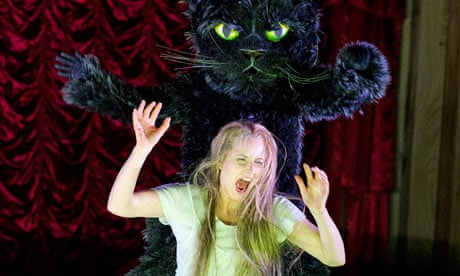It is almost 30 years since David Pountney's ENO production of Rusalka put Dvořák's finest opera on the map in this country [see footnote], and none of the subsequent UK productions has come close to matching its allure and psychological perception. The new Royal Opera production falls farther short than any of them. Directed by Jossi Wieler and Sergio Morabito, with sets by Barbara Ehnes, it was first seen at the Salzburg festival four years ago and has now been revived for London by Samantha Seymour.
Wieler and Morabito take this timeless tale of the water nymph who yearns to be human so she can experience love and turn it into the modern-day story of a prostitute who craves a real relationship with a man rather than just mercenary sex. There may be a kind of logic to the transposition. The location changes to a brothel somewhere in Europe, decorated in stripped pine and red brocade; the witch Jezibaba becomes the madam, and the water goblin, Rusalka's father, some kind of minder for the girls. But it ultimately becomes an unedifying exercise in postmodern, operatic grunge, with just the occasional surreal touch and rather too much Christian symbolism.
Some of the emotional truths of the tragedy survive, thanks to a few outstanding performances. Camilla Nylund is not quite the vulnerable, idealistic Rusalka she needs to be, and perhaps her voice sometimes lacks allure, but she is genuinely touching. Brian Hymel is a lustrous Prince, and Alan Held an eloquent water goblin. The rest of the singing is mediocre, and it's Yannick Nézet-Séguin's conducting that gives the performance a dramatic shape: measured to begin with, it gradually builds in intensity until the climax is authentically shattering.

Comments (…)
Sign in or create your Guardian account to join the discussion